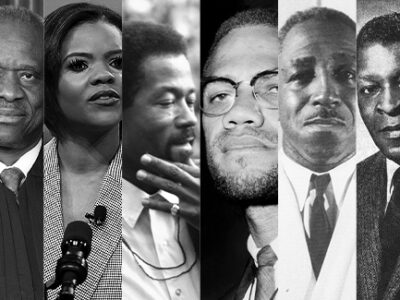Religious conservatives worried about the Harriet Miers nomination, and her stance on abortion and other social-cultural issues, ought to step back and consider the transparent religious faith of President George W. Bush and his Supreme Court associate justice nominee.
The president “believes that God charts his ultimate course, and that his duty is to accept God’s calling and forge ahead,” Paul Kengor, political science professor at Grove City College north of Pittsburgh, told us in “God and George W. Bush: A Spiritual
Journey.” “In so doing, he says that he relies on his faith for guidance and forbearance in a battle against what he views, unequivocally, as pure evil. This is his ‘charge to keep’ on his spiritual journey.”
David Aikman, Time magazine’s chief foreign correspondent for many decades, recalled in his book, “A Man of Faith,” the December 1999 Republican presidential debate in Des Moines, Iowa, when candidate Bush named Jesus Christ as his philosopher-king and fueled condescending “howls of the secular elites.”
What the comment showed, Mr. Aikman said, “was that, for better or for worse, George W. Bush was a political leader whose faith seemed more integrally linked with the rest of his life, and certainly with his political views, than was the case in almost all of the 20th-century aspirants for the White House…[T]here was something different about Bush’s faith.”The president’s Christian beliefs inform all his actions and decisions–including his Supreme Court nominations.
So what do we know about Harriet Miers? She’s one of the president’s large group of strong and longtime women advisers including wife Laura; communications confidante, Karen Hughes; Secretary of State, Condoleezza Rice; and Education Secretary, Margaret Spellings–all veteran members of the president’s inner circle going back to his days as Texas governor, and strong Christian believers.
Miss Miers converted to evangelical Protestantism 26 years ago and for many years has attended Valley View Christian Church, an independent conservative “restorationist” church in Dallas, Texas, where she has taught Sunday school. The pastors and deacon leaders of Valley View are staunchly anti-abortion and anti-euthanasia.
So why the religious-conservative nervousness about Harriet Miers?
Because when she ran for Dallas City Council in 1989, she said in a questionnaire from Texans United for Life that she endorsed amending the U.S. Constitution to ban abortion except when necessary to save the life of the mother.
That position is viewed by staunchly pro-life people as a waffle.
But the president obviously had many personal conversations with Harriet Miers, knows her heart and mind on these issues as well as anyone, and told us in a sermon more than six years ago at Second Baptist Church in Houston, published verbatim in Mr. Aikman’s book:
“Faith is a powerful tool for change, and it’s just the tool we need to confront the biggest challenge facing Texas today. That is, how do we change a culture that says ‘If it feels good, do it?’ And ‘If you’ve got a problem, blame someone else.’ The warning signs of our failed culture are everywhere. Men and boys father children and walk away, saying, ‘Hey, they’re not my problem. They’re yours.’ Nearly a third of new babies will be born out of wedlock in Texas this year. The toughest job in Texas – the toughest job – is for single women to raise children.”
Does Harriet Miers share these views? Members of the Senate Judiciary Committee should ask her that, and how the president’s religious and so-called “compassionate conservative” views instruct and inform her approach to the job of a lifetime Supreme Court associate justice.
There is also the question of her intellectual depth. Some senators who met with her have expressed disappointment in her responses to probing questions aimed at drawing out her depth of intellectual foundational knowledge and forensic skills.
The other eight Supreme Court justices, split philosophically and all good thinkers, have strong intellectual skills and gravitas. They would make mincemeat of Harriet Miers in conferences to discuss important cases if she lacks comparable intellectual skills. It seems this is the major important question about this nominee. We’ll see in the Senate hearings.
She’s got to perform very well in the aftermath of Chief Justice John Roberts’ superlative performance. Beyond her expressed views on abortion and other issues, Harriet Miers must define herself with a profound understanding of the judicial system that she will join at the top, and her intellectual ability to grapple over the next several decades with the most difficult issues facing our country.
But religious conservatives should trust George W. Bush and give his nominee a shot at proving herself. He’s told us why he’s in the Oval Office, and what informs his decisions on national policies and presidential appointments: “Because someday I’m going to stand before God, and I want to hear him say, ‘Well done!’ I hope that’s why we’re all here.”




